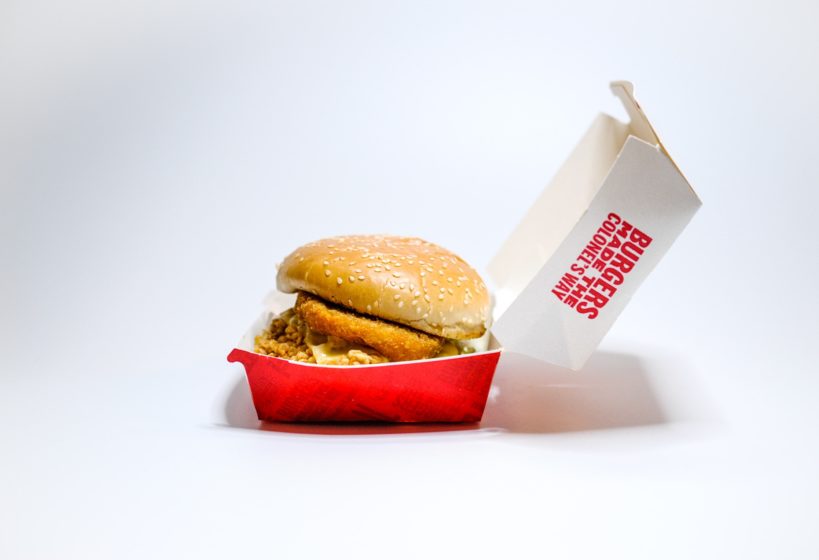
10 Mar The Truth About Ultra Processed Foods
Evidence has linked ultra processed food consumption with obesity and a range of health risks. So what actually are UPFs? And how can you avoid them?
WHAT ARE ULTRA PROCESSED FOODS?
Ultra processed foods, (UPFs) are heavily processed products with five or more ingredients, containing additives like preservatives, sweeteners, or artificial colours. Examples include ice creams and sweets, processed meats like sausages and ready meals. However they can also include surprising everyday foods, like bread and cereals that are marketed as ‘healthy’. These foods are linked to health risks due to high levels of inflammatory fats, sugar and refined carbohydrates, as well as low levels of essential nutrients.
WHY ARE UPFS A PROBLEM?
As a nation we eat far too much ultra processed food. Data from the UK National Diet and Nutrition Survey (2008–2014) found that ultra processed foods (UPFs) account for 56.8% of total energy intake and 64.7% of total free sugars in the UK diet.
More recent research from Imperial College highlighted that ultra processed foods make up a considerably high proportion of children’s diets. More than 60% of calories on average came from UPFs. The higher the proportion of UPFs they consume, the greater the risk of becoming overweight or obese.
Research has not only linked UPF consumption to higher risks of obesity, but also high blood pressure, high cholesterol, and some cancers. Simply put: the less we eat, the better.
HOW TO SPOT ULTRA PROCESSED FOODS
Some UPFs are easier to spot than others. Learning how to identify them is key if you’re keen to minimise you’re intake. In terms of food processing, there are four established categories. They go from unprocessed to ultra processed. For more information on this, here are the NOVA groups for food processing.
How to spot a UPF, the three criteria:
1. It comes in a packet.
2. Contains more than five ingredients.
3. Contains at least one item characteristic of the NOVA ultra processed food group. Either food substances never or rarely used in kitchens (such as high-fructose corn syrup, hydrogenated or interesterified oils, and hydrolysed proteins), or classes of additives designed to make the final product palatable or more appealing (such as flavours, flavour enhancers, colours, emulsifiers, emulsifying salts, sweeteners, thickeners, and anti-foaming, bulking, carbonating, foaming, gelling and glazing agents).
SURPRISING EXAMPLES OF UPFS
Certain foods are more easily recognisable as ultra processed than others. Here are a few examples you might find surprising. You can click the links to view the list of ingredients in the products:
Proper Chips Lentil Chips (same goes for Popchips and Hummus Chips)
Why have we chosen these brands to highlight? Because these foods are positioned as healthy. Words like ‘wholemeal’, ‘natural’ and ‘lentil’ can lead us to believe they’re good for us. That’s before we get onto the imagery and other clever marketing terms used. There are plenty more examples.
TIPS FOR AVOIDING ULTRA PROCESSED FOODS
Awareness is key. Once you’re aware of the the defining characteristics of UPFs, it won’t take you long to identify them in the supermarket. Here are a few more ways to avoid UPFs:
Choose single ingredient foods as much as possible. An apple is an unprocessed food, an apple flavoured ‘fruit winder’ is not.
Cook from scratch where you can. This gives you ultimate control over what’s going into your food.
Read labels – look at the ingredients lists to know what you’re consuming. Look beyond the clever marketing messages on the front of food packaging.
Make swaps. For example, plain, natural, organic yoghurt is a much better option than processed low fat yoghurts.
WORK WITH US
We are a team of qualified nutritionists who specialise in weight loss. If you’re ready to overcome your weight challenges, achieve your goal weight and maintain it long term, we can help. You can use this link to book in for a complimentary call. This is an opportunity to talk through your challenges with a member of our team and decide together whether one of our Intelligent Weight Loss programmes is right for you. Or contact us to request a copy of our brochure and we will get back to you soon.
Sign up for our newsletter for the latest health, weight loss and wellbeing advice, direct to your inbox.


